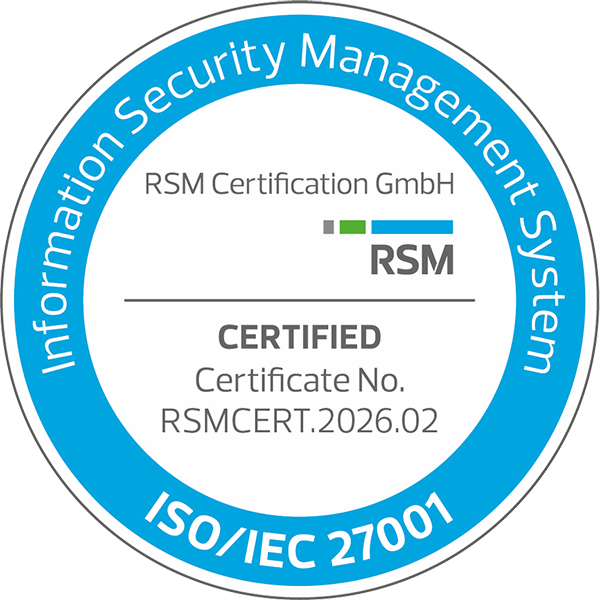When receiving an invoice, most people check the amount first. But the invoice number deserves just as much attention. It helps the recipient clearly identify the invoice, document it internally, and process it correctly for tax purposes.
What is an invoice number?
An invoice number uniquely identifies an invoice. It consists of a sequential combination of numbers or letters assigned by the issuer. Its purpose? To ensure every invoice can be traced without ambiguity, much like a fingerprint in document management.
What is the purpose of an invoice number?
Invoice numbers serve multiple functions, not only for the issuer but also for the recipient. They are a key organizational tool in accounting and play a vital role in internal processing.
What does an invoice number help with?
- Clear identification of incoming invoices, especially in case of inquiries, complaints, or audits.
- Systematic filing and archiving, whether digitally or on paper.
- Matching payments to invoices, especially when multiple items are outstanding.
- Ensuring eligibility for input tax deduction—without a valid invoice number, tax authorities may reject the invoice.
In companies with high invoice volumes, invoice numbers bring structure and traceability. They’re essential for efficient bookkeeping.
What are the legal requirements for invoice numbers??
In Germany the obligation to include invoice numbers is based, among other things, on Section 14 (4) Sentence 1 No. 4 of the German Value Added Tax Act (UStG). It states:
What does this mean in practice?
- The number must be unique, duplicates are not allowed.
- It must be sequential: gaps are permitted as long as traceability is ensured.
- The format is not prescribed: numbers, letters, or combinations are acceptable.
- The number must be assigned by the issuer, not the recipient.
For invoice recipients, this legal requirement is especially relevant when claiming input tax. If the invoice number is missing or incorrect, the tax office may reject the invoice.
Practical tip: Always check for accurate and clearly structured invoice numbers during invoice approvals. If anything seems unclear, it’s worth reaching out to the supplier. This helps prevent issues during future audits.
What happens if the invoice number is missing?
If an invoice arrives without a number, caution is advised. According to the German VAT Act, the invoice is considered incomplete, which has direct consequences for tax processing.
What are the risks for the recipient?
- Input tax deduction may be denied, the tax office could reject the invoice.
- Internal matching becomes difficult: for example, linking to delivery notes or purchase orders.
- Digital accounting systems may fail to process the invoice correctly an automated workflows break down.
- Audits become more time-consuming, because additional documentation and corrections are required.
A small detail with a big impact: The invoice number is not just a legal requirement, but a practical tool for order and efficiency. Always verify that the number is present and makes sense.
Tip for practice: If the invoice number is missing, request a corrected invoice from the supplier. In most cases, this can be resolved quickly—and your input tax deduction remains secure.

